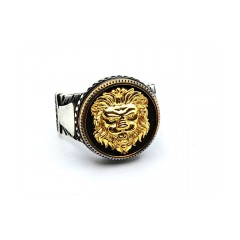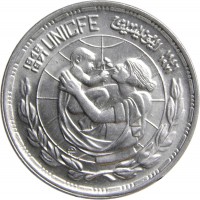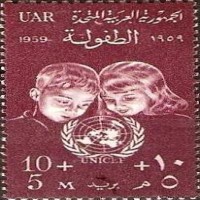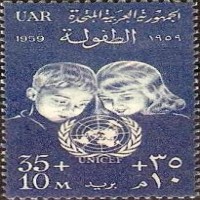The United Nations Children's Fund (UNICEF ) is a United Nations (UN) program headquartered in New York City that provides humanitarian and developmental assistance to children and mothers in developing countries. It is a member of the United Nations Development Group.
The United Nations International Children's Emergency Fund was created by the United Nations General Assembly on 11 December 1946, to provide emergency food and healthcare to children in countries that had been devastated by World War II. The Polish physician Ludwik Rajchman is widely regarded as the founder of UNICEF and served as its first chairman from 1946. On Rajchman's suggestion, the American Maurice Pate was appointed its first executive director, serving from 1947 until his death in 1965. In 1950, UNICEF's mandate was extended to address the long-term needs of children and women in developing countries everywhere. In 1953 it became a permanent part of the United Nations System, and the words "international" and "emergency" were dropped from the organization's name, making it simply the United Nations Children's Fund, retaining the original acronym, "UNICEF".
UNICEF relies on contributions from governments and private donors. UNICEF's total income for 2015 was US$5,009,557,471 . Governments contribute two-thirds of the organization's resources. Private groups and individuals contribute the rest through national committees. It is estimated that 92 per cent of UNICEF revenue is distributed to program services. UNICEF's programs emphasize developing community-level services to promote the health and well-being of children. UNICEF was awarded the Nobel Peace Prize in 1965 and the Prince of Asturias Award of Concord in 2006.
Most of UNICEF's work is in the field, with a presence in 190 countries and territories. UNICEF's network of over 150 country offices, headquarters and other offices, and 34 National Committees carry out UNICEF's mission through programs developed with host governments. Seven regional offices provide technical assistance to country offices as needed.
UNICEF's Supply Division is based in Copenhagen and serves as the primary point of distribution for such essential items as vaccines, antiretroviral medicines for children and mothers with HIV, nutritional supplements, emergency shelters, family reunification, and educational supplies. A 36-member executive board establishes policies, approves programs and oversees administrative and financial plans. The executive board is made up of government representatives who are elected by the United Nations Economic and Social Council, usually for three-year terms.







